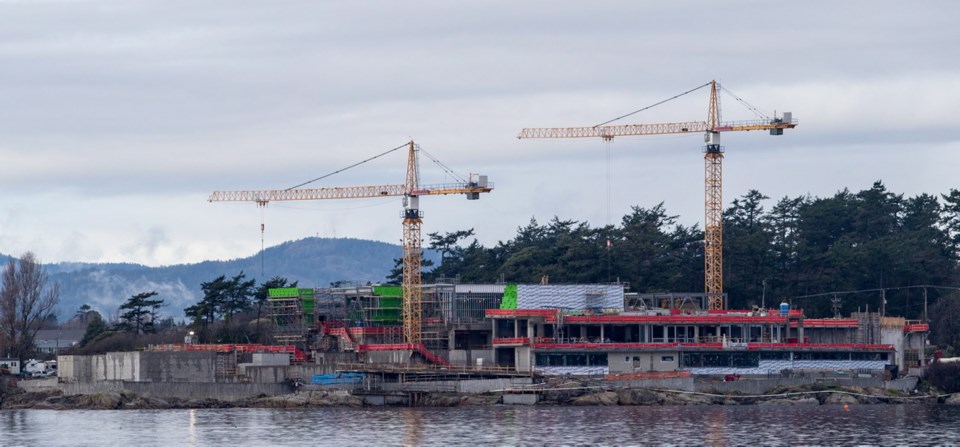The Capital Regional District is planning to ship 7,000 tonnes of dried biosolids out of Hartland landfill annually via bulk trailers to the Lower Mainland, where it will be used as fuel by a cement plant near Richmond.
Shipping is expected to start mid-year.
The CRD estimates 20 tonnes of treated dried biosolids will be generated every day at Hartland.
It’s seeking proposals from trucking companies to carry those solids from Hartland to Richmond.
The request for proposals closes Jan. 22, and the CRD is striving to choose a company near the end of February.
The aim is to have a three-year contract come into effect July 1, with the possibility of two one-year extensions.
To mitigate the possibility of explosion or combustion, trailers must be equipped with inert, low-pressure systems allowing for a blanket of nitrogen to fill any empty space, the regional district said in its request for expressions of interest from the trucking industry.
Dealing with the biosolids is a key part of the region’s $775-million plan to treat sewage. The province has mandated that the CRD have secondary treatment by year’s end.
Treated wastewater will be pumped into the ocean, while remaining solids will be carried in an 18-kilometre pipe to the new residuals treatment facility at Hartland at 380 Willis Point Rd.
The treated biosolids will turn into a granular material, with pieces between one millimetre and three millimetres in size. The material will be at least 90 per cent dry, according to the request for proposals.
Bulk trailers should be able to hold up to 50 tonnes, the document said. The contractor will need to supply two trailers that can be swapped out every two to three days.
Interested companies have been asked to provide an approximate range of cost per tonne.
The CRD said consideration should be given to using B.C. Ferries’ trailer-drop service to keep costs down and to back-hauling (carrying a product on the return trip rather than transporting an empty trailer on the return trip).
Expressions of interest are being sought to transport the biosolids for the first three to five years.
Once the contract is in place, the CRD plans to send its biosolids to cement plants near Richmond, where they will be used with coal in cement kilns, a 2019 CRD staff report said. Any ash created would be incorporated into the cement product.
The goal is to have a long-term biosolids plan crafted by mid-2023, the report said. The aim is to “capitalize on the energy value of biosolids while minimizing the potential risks to the environment and human health,” the report said.
Options will be short-listed and First Nations feedback and public consultation are anticipated.



